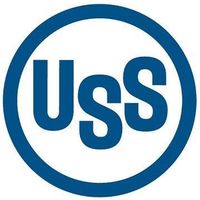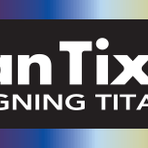Nippon Steel's Washington Gambit: A High-Stakes Game for U.S. Steel
May 10, 2025, 10:35 pm

Location: United States, Pennsylvania, Pittsburgh
Employees: 10001+
Founded date: 1901
Total raised: $240M
U.S. Department of the Treasury
Location: United States, District of Columbia, Washington
Employees: 10001+
Nippon Steel is on a mission. The Japanese steel giant is sending its Vice Chairman, Takahiro Mori, to Washington next week. The goal? To push for approval of a $15 billion bid for U.S. Steel. This is not just a business deal; it’s a chess match in the arena of international trade and national security.
The stakes are high. U.S. Steel is a cornerstone of American industry. It’s a symbol of strength, a titan in the manufacturing sector. But this deal has faced hurdles. Former President Joe Biden blocked the merger in January, citing national security concerns. The Committee on Foreign Investment in the United States (CFIUS) led the review, raising red flags about foreign control over a key American asset.
Biden’s decision wasn’t just a bureaucratic hurdle. It was a political maneuver. The president was eyeing the United Steelworkers union, a powerful player in Pennsylvania, where U.S. Steel is headquartered. By opposing the deal, Biden aimed to solidify support in a crucial swing state. It’s a classic case of politics influencing business, where the stakes are not just dollars but votes.
Nippon Steel and U.S. Steel didn’t take the rejection lying down. They filed a lawsuit against CFIUS, claiming that Biden had prejudged the deal. They argued that the president’s comments during his re-election campaign tainted the review process. It’s a bold move, but it highlights the tension between corporate interests and political agendas.
Now, the winds of change may be blowing. In April, former President Donald Trump directed CFIUS to reassess the merger. This sparked a flicker of hope for Nippon Steel. Trump’s administration has been known for its pro-business stance, and a fresh look at the deal could pave the way for approval. But hope is a fragile thing. Trump has since reiterated his opposition, stating that he doesn’t believe a foreign company should control U.S. Steel. This has cast a shadow over the potential for a green light.
Mori’s upcoming visit is a strategic play. Meeting with Trump administration officials could provide insights and perhaps sway opinions. It’s a dance of diplomacy, where every word counts. The stakes are not just financial; they’re about influence and control in a globalized economy.
The backdrop of this drama is a broader narrative about foreign investment in the U.S. The landscape is shifting. National security concerns are at the forefront. The Biden administration has made it clear that protecting American interests is paramount. This sets a challenging stage for foreign companies looking to invest in the U.S. market.
Nippon Steel’s bid is not just about acquiring a company; it’s about gaining a foothold in a critical industry. Steel is the backbone of infrastructure. It’s essential for construction, manufacturing, and defense. Control over U.S. Steel means influence over a vital sector. For Nippon Steel, this deal represents growth and expansion in a competitive global market.
But the road ahead is fraught with obstacles. The political landscape is unpredictable. The tug-of-war between economic interests and national security will continue to shape the narrative. Mori’s visit to Washington is a crucial step, but it’s just one move in a larger game.
As the clock ticks down to his meetings, the industry watches closely. Will Nippon Steel’s efforts bear fruit? Or will the deal remain a dream deferred? The outcome could set a precedent for future foreign investments in the U.S. steel industry.
In the end, this isn’t just about steel. It’s about power, influence, and the future of American manufacturing. The stakes are high, and the players are formidable. Nippon Steel is betting big, but the house always has the advantage. The next chapter in this saga will unfold soon, and the world will be watching.
The stakes are high. U.S. Steel is a cornerstone of American industry. It’s a symbol of strength, a titan in the manufacturing sector. But this deal has faced hurdles. Former President Joe Biden blocked the merger in January, citing national security concerns. The Committee on Foreign Investment in the United States (CFIUS) led the review, raising red flags about foreign control over a key American asset.
Biden’s decision wasn’t just a bureaucratic hurdle. It was a political maneuver. The president was eyeing the United Steelworkers union, a powerful player in Pennsylvania, where U.S. Steel is headquartered. By opposing the deal, Biden aimed to solidify support in a crucial swing state. It’s a classic case of politics influencing business, where the stakes are not just dollars but votes.
Nippon Steel and U.S. Steel didn’t take the rejection lying down. They filed a lawsuit against CFIUS, claiming that Biden had prejudged the deal. They argued that the president’s comments during his re-election campaign tainted the review process. It’s a bold move, but it highlights the tension between corporate interests and political agendas.
Now, the winds of change may be blowing. In April, former President Donald Trump directed CFIUS to reassess the merger. This sparked a flicker of hope for Nippon Steel. Trump’s administration has been known for its pro-business stance, and a fresh look at the deal could pave the way for approval. But hope is a fragile thing. Trump has since reiterated his opposition, stating that he doesn’t believe a foreign company should control U.S. Steel. This has cast a shadow over the potential for a green light.
Mori’s upcoming visit is a strategic play. Meeting with Trump administration officials could provide insights and perhaps sway opinions. It’s a dance of diplomacy, where every word counts. The stakes are not just financial; they’re about influence and control in a globalized economy.
The backdrop of this drama is a broader narrative about foreign investment in the U.S. The landscape is shifting. National security concerns are at the forefront. The Biden administration has made it clear that protecting American interests is paramount. This sets a challenging stage for foreign companies looking to invest in the U.S. market.
Nippon Steel’s bid is not just about acquiring a company; it’s about gaining a foothold in a critical industry. Steel is the backbone of infrastructure. It’s essential for construction, manufacturing, and defense. Control over U.S. Steel means influence over a vital sector. For Nippon Steel, this deal represents growth and expansion in a competitive global market.
But the road ahead is fraught with obstacles. The political landscape is unpredictable. The tug-of-war between economic interests and national security will continue to shape the narrative. Mori’s visit to Washington is a crucial step, but it’s just one move in a larger game.
As the clock ticks down to his meetings, the industry watches closely. Will Nippon Steel’s efforts bear fruit? Or will the deal remain a dream deferred? The outcome could set a precedent for future foreign investments in the U.S. steel industry.
In the end, this isn’t just about steel. It’s about power, influence, and the future of American manufacturing. The stakes are high, and the players are formidable. Nippon Steel is betting big, but the house always has the advantage. The next chapter in this saga will unfold soon, and the world will be watching.
